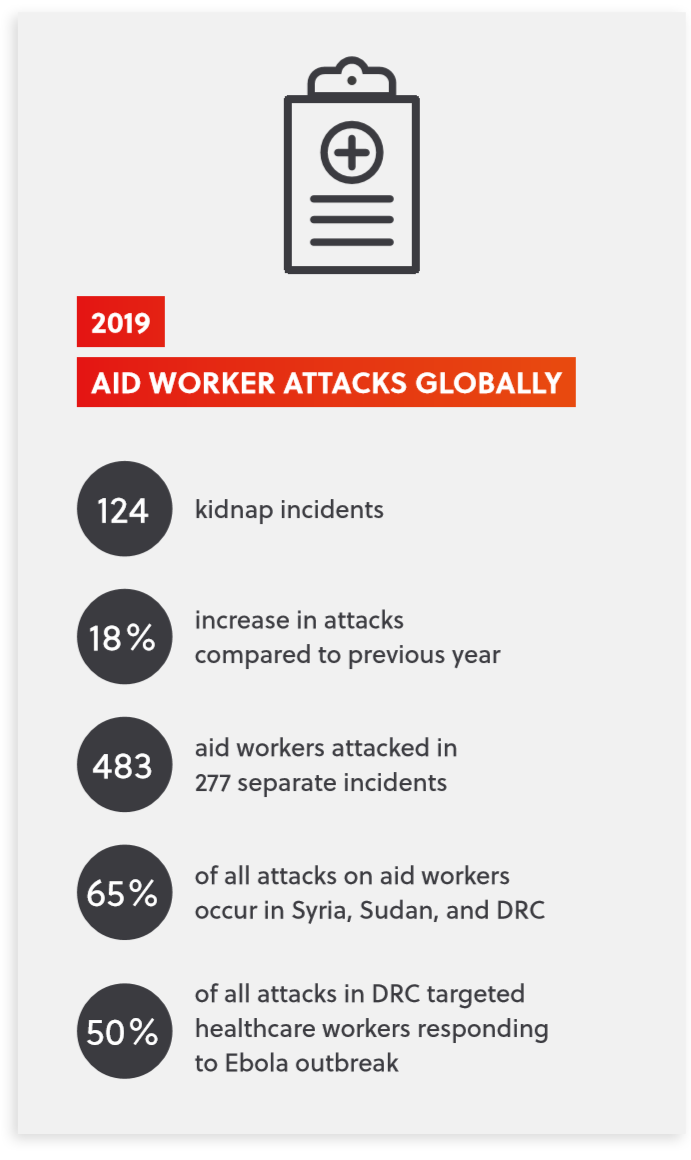Kidnappings in the DRC: Increased attacks on aid workers
A KIDNAP GONE WRONG
On 22 February, militants in eastern Democratic Republic of Congo (DRC) killed the Italian ambassador, Luca Attanasio, during an attack on a World Food Programme (WFP) convoy he was travelling in from Goma to Rutshuru in North Kivu Province. The convoy was attacked while it was traveling along the RN2 motorway – a road which had previously been cleared to travel without security escorts – next to Virunga National Park. Soldiers near the Virunga National Park responded to the attack and engaged the militants in a gun-battle, where Attanasio and two others were shot and fatally injured. Militants managed to abduct four people before escaping. Soldiers later found one person, but the three others remain missing.
Finding the group responsible for the attack has been challenging. At least four militant groups maintain an operational presence in the region where the attack took place, including the Forces démocratiques de libération du Rwanda (Democratic Forces for the Liberation of Rwanda, FLDR). The Congolese government have accused the FLDR of orchestrating the attack – a charge the group refutes. Instead, the FLDR have blamed the soldiers and another militant group for the death of the ambassador.
A GROWING TREND
The UN has raised concerns that the incident was an attempted kidnap for ransom attack that went wrong. This would fit a trend of increased kidnappings and attacks targeting foreign humanitarian and other aid workers in DRC this year. Kidnapping for ransom has been commonplace in the eastern DRC since 2015, as the rampant economic crisis, political instability, lawlessness, and weak security situation have created an environment conducive for kidnapping groups to act with near impunity. Between January and December 2020, militants in eastern DRC conducted at least 17 kidnappings on aid workers compared to nine kidnappings during the same reporting period in 2019. These attacks have remained largely concentrated in the North-Kivu and South Kivu Provinces.
The Covid-19 pandemic and the associated restrictions such as closure of land borders has impacted gold mining, and trading. As a result, militants who relied on the proceeds of mining to fund their activities have increased their kidnap activities targeting foreign aid workers this year. According to data from Impact, a responsible mining NGO, in Ituri Province at least 79 of the 85 gold trading houses have shut down as they have no buyers. With the borders closed, and commerce and road traffic slowing, militants who received funding through taxation and extortion for safe passage through routes have found themselves with reduced income. The deficits have likely prompted groups to increase their kidnapping activities targeting foreign aid workers in order to make up the shortfalls. Foreign aid workers often yield higher ransom fees than local nationals. Kidnappers tend to demand between USD 200 and USD 30,000 for local nationals compared to ransom demands of up to USD 1 million for foreign aid workers. In most cases victims are released after a ransom has been paid.

CONCLUSION
Kidnapping attacks targeting foreign aid workers will likely increase in the coming months and years. The economic impact of the Covid-19 pandemic has not only affected the revenue streams of militant groups, but local nationals in eastern DRC as well, making it more difficult to extract large ransom sums from locals. While security operations targeting militant groups in eastern DRC have been ongoing since 2019 October, the presence of soldiers in the vast eastern DRC has done little to impede the activities of kidnap groups in the region. Humanitarian and other aid groups will face an increasingly difficult task to balance the calls for aid amid the Covid-19 vaccine rollout and a growing Ebola outbreak in the eastern DRC with that of the safety of volunteers and healthcare workers.
